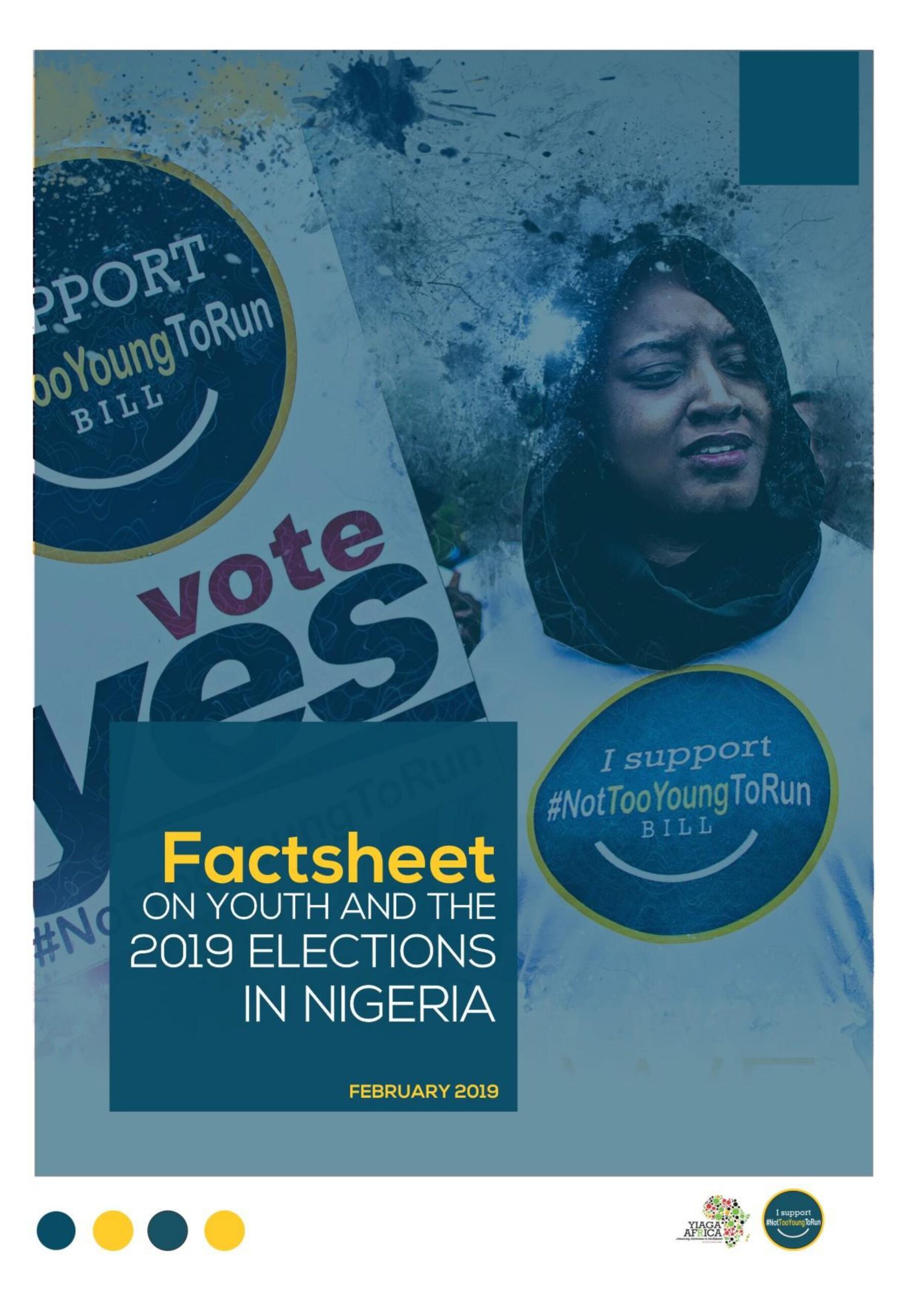Since the return in 1999 to civil rule, Nigeria has conducted five general elections: 1999, 2003, 2007, 2011 and 2015. The five elections were noted for the low levels of youth participation as candidates. This situation was in part due to the 1999 Constitution which placed minimum age limits for those wishing to contest the following elective positions and seats: President 40 years, Senate, 35 years, House of Representatives, 30 years, Governors, 35 years and State Houses of Assembly, 30 years. The constitutional age requirements shut the door on Nigerian youth who constitute most of the population and registered voters.
The circumstances of the 2019 general elections scheduled for February 16, 2019 for Presidential and National Assembly and March 2, 2019 for the Gubernatorial and State Houses of Assembly polls are, however, significantly different, thanks to the passage of the Not Too Young To Run bill into law in 2018. The campaign to lower the constitutional age limit to increase the involvement of the youth, defined as Nigerians in the age bracket of 18–35 years in the electoral process, was spearheaded by Yiaga Africa and the Not Too Young To Run Movement. The coming into effect of the age reduction legislation has witnessed the emergence of a new wave of competent and credible young women and men, who are aspiring to run for political offices in2019, with a fresh agenda committed to providing innovative, transformative, and responsive leadership in the public domain. Young people’s right to run for public office is immensely important because it deepens and sustains democracy. That regular elections are an indispensable feature of modern democracy, creating awareness on the importance of youth candidacy in elections, has become more relevant and urgent especially owing to Nigeria’s youthful population.

